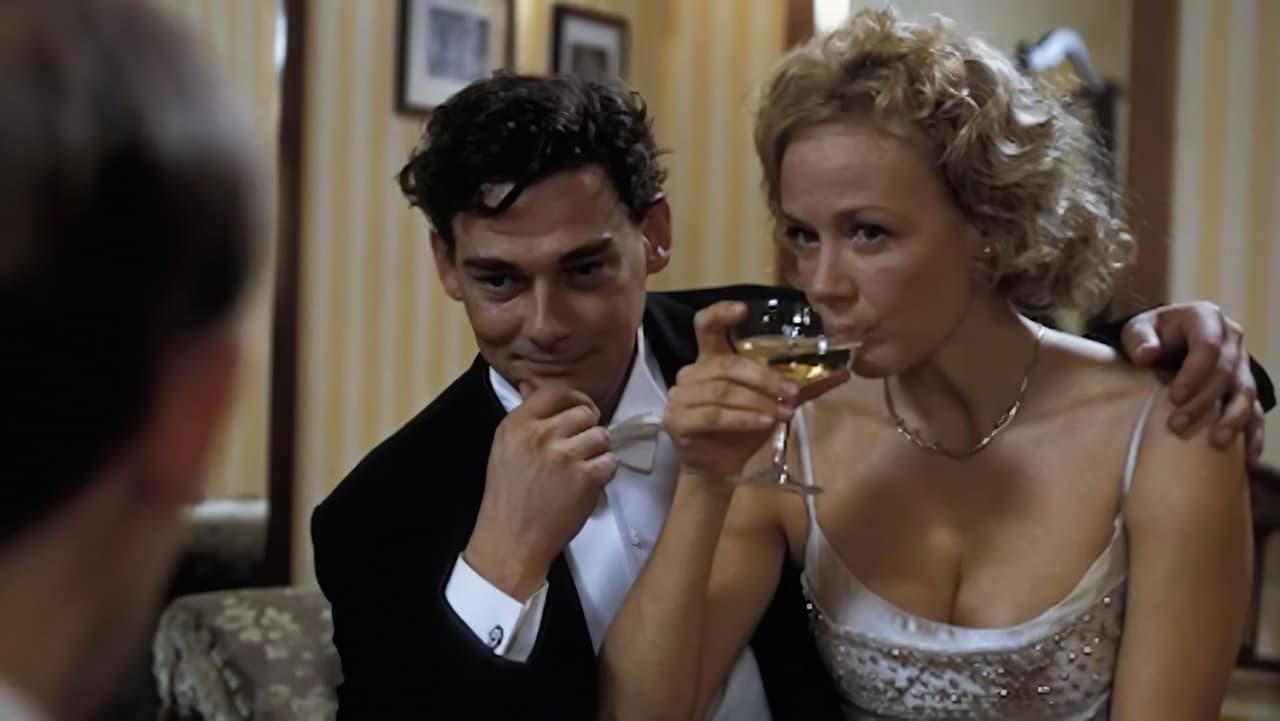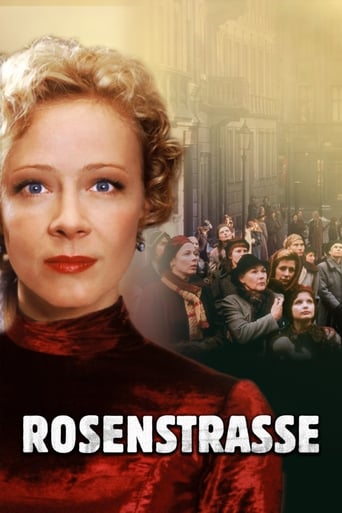

The van trotta movie rosenstrasse is the best movie i have seen in years. i am actually not really interested in films with historical background but with this she won my interest for that time!!the only annoying thing about the movie have been the scenes in new york, and the impression i had of "trying to be as American as possible" ... which i think has absolutely failed.the scenes in the back really got to my heart. the German actress katja riemann completely deserved her award. she is one of the most impressing actress i have ever seen. in future i will watch more of her movies. great luck for me that i am a native German speaking =) and only for a year in the us, so as soon as i am back i'll buy some riemann dvds.so to all out there who have not seen this movie yet: WATCH IT!!! i think it would be too long to describe what it is all about yet, especially all the flash backs and switches of times are hard to explain, but simply watcxh it, you will be zesty!!!!!!!
... View MoreFilm is a cultural product more or less reflecting the trend of a time. Thus, I was made alert when I was watching this slow-tuned movie. Why in such a sudden in the past few years, movies like "Rosenstraße" depicting the humane behaviour of the Germans at wartime mushroom? "The Pianist", "Der Untergang" join the rally.People may say, "Time heals!" "We need to do justice to the German". True, true, true, doubtlessly, there must have been German citizens who were holding opposing ideas against the Nazi government's. There must be kind-hearted and righteous Germans who protected Jewish people and later got persecuted by their own people. And there is a need to make movies reflecting the true historical facts. These films are 100% not party or government propaganda. My concern here is "timing". Tellingly, why didn't these movies come up in the 70's, 80's or 90's? But early 21st Century when the Neo-Nazi is rising quietly bit by bit today in Germany. I cannot but easily associate these movies to what is really happening in this country.
... View MoreSPOILERS WITHIN.It appears that von Trotta was a lot more at ease with what the balance of personal story versus history of the events than she was in her earlier film Versprechen, Das (1995).The direction seemed carefully controlled, and visually I felt it was highly appealing - especially where the visual narrative was concerned (the title-sequence blend and the lighting of a new candle in modern times commemorating the deaths of various characters in the past).To clarify two points that many people have been confused by:Firstly, Lena did not sleep with Goebbels. Although this may have seemed implied, it was not the intent. Von Trotta told me so herself! (And she is a very nice lady, by the way!)Secondly, the time-frame of events was in fact historically accurate (the actual dates are shown on the close-up of the memorial) and the prisoners were released as suddenly as in the film. There is evidence showing that Goebbels was annoyed about having done this, and had planned to eventually recapture those he had set free.Overall, what most impressed me most was that it was an original story from a much 'over-movied' era. It seems a shame that it has taken such a long time (for various reasons) for this film to hit our screens.More of the same please, Margarethe!
... View MoreI saw this film at the Toronto Film Festival, where it received a standing ovation! This film tells a story that to my knowledge has never been told before--namely about the Rosenstrasse (a street in Berlin)uprising of German gentile women who were married to Jews at the end of the Second World War. As such, it is a unique story, and what's more, is the only film about the Holocaust that I have ever seen that shows that there were GOOD Germans (the helping family in "Anne Frank" for instance was Dutch) who did NOT support the Nazis, and, in fact, had the fortitude to stand up against their own country's immorality and brutality during the Nazi regime, at the risk of their very lives. The acting is great across the board, the framing story in New York interesting and intricate, the direction from Von Trotta masterful in every scene, and the production values, including the gorgeous cinematography, outstanding. Of course the family in New York could be speaking German. Many immigrants in this country choose to speak in their native tongue with their family--a common occurrence. So that criticism is unwarranted. To say more would spoil the experience. The film is long, but I did not look at my watch once. I am hoping this film gets some distribution is North America, for not only is this film a masterpiece, but it can actually help heal any animosity people have towards the Germans because of their support of Hitler. If this film is playing in your area, I URGE YOU TO SEE IT! You will be glad you did!
... View More